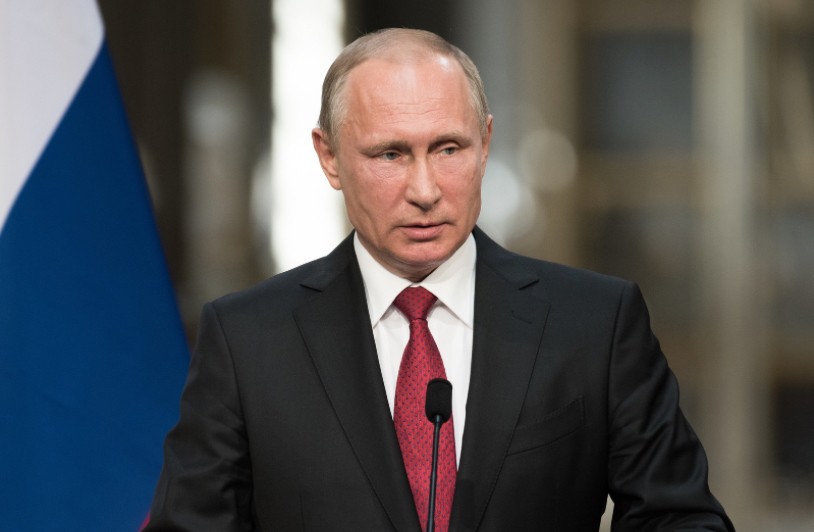Tyrannies Fear Prosperous Societies Which Leads to Global Aggression
The mere example of people living free and prosperous lives in a democracy inspires unrest among the subjects of nearby tyrannies. Democracies therefore subvert tyrannies just by existing.
When Russian President Vladimir Putin announced his full-scale invasion of Ukraine in February 2022, he declared that expansion of NATO “is a real threat not just to our interests, but to the very existence of our state, its sovereignty.” This claim was central to his argument.
Putin’s speech could be dismissed as Russian propaganda, but it hid a greater truth. Western democracy doesn’t just threaten the Russian regime. People living free, prosperous lives with self-determination, civil liberties and reasonably reliable rule of law are automatically subversive to the subject peoples of a tyranny.
Putin’s original 2014 invasion was triggered by Ukraine’s engagement with one of the few offensive weapons of the democracies, the European Union. Not NATO, the EU. The EU doesn’t look like an offensive weapon, but it is. The EU is the sword to NATO’s shield.
The requirements for joining the EU consist mainly of democracy, the rule of law, human rights and a market economy. When Ukrainians overthrew their tyrant, signed the European Union–Ukraine Association Agreement, and began making internal changes needed to join the EU, their actions were intolerable to the Russian tyranny and triggered the attack. It was an existential threat to the Russian regime, but not to the Russian people who might be inspired by it.
Putin claiming the threat came from NATO distracted people from the embarrassing truth that the real threat came from the Russian citizenry.
Fear of Their Own People
Most democracies that emerged from tyrannies in the last half century used a combination of mass demonstrations and internal revolutions by elites. They have largely succeeded without significant violence.
A combination of mass demonstrations and internal revolts by senior officials overthrew dictatorships in the Soviet Union, its six Warsaw Pact satellites and later Ukraine. Non-violent mass movements also overthrew dictators in the Philippines, Indonesia, South Korea, and are now attempting to overthrow tyrannies in Venezuela among others. The greatest threat to most dictators is an uprising of their own people.
Listening to speeches by tyrants, it’s easy to see that they fear their own subjects more than external enemies. They know that most people desire the freedom and prosperity enabled by democracy.
No tyrant can tolerate their subjects being in close communication with a free and prosperous democracy. Tiny Hong Kong had value for the Chinese economy as long as it was free and democratic with a rule of law that businesses could trust. The Chinese tyranny, however, could not tolerate a democracy in close contact with the Chinese people and so moved to crush it.
No Russian tyranny will tolerate a prosperous and democratic Ukraine. Any Kremlin dictator will feel compelled to attack Ukrainian democracy for the simple reason that the existence of Ukrainian democracy mounts an existential attack on Russian tyranny.
Fear of Democracies
The only thing keeping any tyranny from attacking a neighboring democracy is fear. Fear is the only thing keeping China from attacking Taiwan, the only thing keeping North Korea from attacking South Korea and the only thing keeping Russia from attacking the Baltic states. Those fears are well founded, for history demonstrates that democracies are tremendously effective at war once aroused.
Democratic proficiency at war led today’s tyrannies to adopt strategies to block or avoid direct military conflict. The safest, least expensive, and most frequently successful strategy is subversion using agents, money and propaganda.
Another is tacit alliance of ideologically mismatched tyrannies. Alignment of the communist hereditary monarchy of North Korea with the capitalist oligarchy of Russia with the semi-capitalist, semi-communist oligarchy of China with the Islamic theocracy of Iran, proves that ideology is no longer the determining force. Only tyranny versus democracy matters now.
No Permanent Peace
Those who live in democracies have little reason to think they are attacking tyrannical regimes, but they are. Wealthy democracies like Japan, Europe and the United States are a particular threat to tyrannies because their influence is global.
Attacking a tyranny for any reason confirms their paranoia. Trying to befriend a tyranny will be seen as an attempt at subversion. The democracies best approach to established tyrannies is probably to treat them with civility, do business with them cautiously and minimize unnecessary frictions. Democracies must stay alert for attempts by tyrannies to subvert them and ready to react decisively against military aggression. Tyrannies will always attack democracies if they think they can tolerate the consequences. Only their ever-present fear deters them.
Democracies should never think they can make permanent peace with tyrannies when their very existence attacks tyranny every day. Tyrannies will never make permanent peace with democracies because they can’t.




